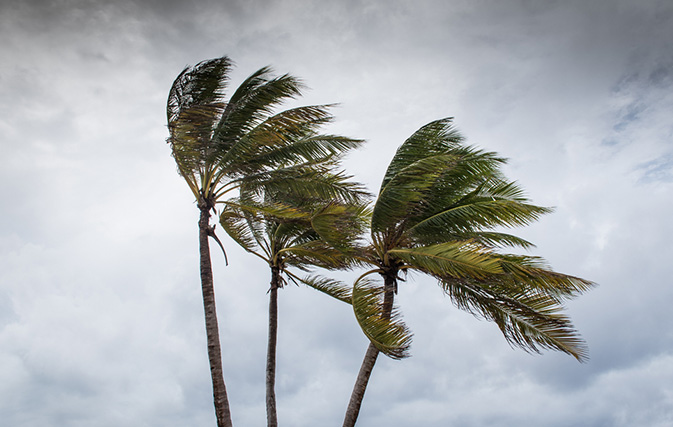HAVANA (AP) — Hurricane Fiona roared over the Dominican Republic on Monday after knocking out power across all of Puerto Rico, causing damage the governor said was “catastrophic.” Many people were left without water service.
No deaths had been reported, but authorities in the U.S. territory said it was too early to know the full scope of damage from an expansive storm that was still forecast to unleash torrential rain across Puerto Rico on Monday.
The island’s National Weather Service office said flash flooding was occurring in south-central parts of Puerto Rico and tweeted, “MOVE TO HIGHER GROUND IMMEDIATELY!”
Up to 22 inches (56 centimetres) of rain had fallen in some areas of Puerto Rico and forecasters said another 4 to 8 inches could fall — perhaps up to 15 inches in some places — even as the storm moves away.
As much as 15 inches (38 centimetres) were projected for the eastern Dominican Republic, where authorities told most people to stay home from work, closed ports and banned use of beaches.
“It’s important people understand that this is not over,” said Ernesto Morales, a meteorologist with the National Weather Service in San Juan.
He said flooding reached “historic levels,” with authorities evacuating or rescuing hundreds of people across the island.
“The damages that we are seeing are catastrophic,” said Gov. Pedro Pierluisi.
The territory’s water agency reported that it had cut domestic service to many areas because of turbulent water or lack of power.
Before dawn on Monday, authorities in a boat navigated the flooded streets of the north coast town of Catano and used a megaphone to alert people that the pumps had collapsed, urging them to evacuate as soon as possible.
Authorities said at least 1,300 people spent the night in shelters across the isiand.
Brown water rushed through streets, into homes and consumed a runway airport in southern Puerto Rico.
Fiona also ripped asphalt from roads and washed away a bridge in the central mountain town of Utuado that police said was installed by the National Guard after Hurricane Maria hit in 2017 as a Category 4 storm.
The storm also tore the roofs off homes, including that of Nelson Cirino in the northern coastal town of Loiza.
“I was sleeping and saw when the corrugated metal flew off,” he said as he watched rain drench his belongings and wind whip his colorful curtains into the air.
Fiona was centered about 10 miles (15 kilometers) southeast of Samana in the Dominican Republic, with maximum sustained winds of 85 mph (140 kph) on Monday morning, according to the U.S. National Hurricane Center. It was moving to the northwest at 8 mph (13 kph).
Tropical storm-force winds extended out for 140 miles (220 kilometers) from the center.
Forecasters said the storm’s was expected to emerge over the Atlantic in the afternoon and pass close to the Turks and Caicos islands on Tuesday. It could near Bermuda as a major hurricane late Thursday or on Friday.
Fiona hit Puerto Rico on the anniversary of Hurricane Hugo, which slammed into the island in 1989 as a Category 3 storm, and two days before the anniversary of 2017’s devastating Hurricane Maria _ from which the territory has yet to fully recover.
That hurricane caused nearly 3,000 deaths and destroyed the power grid. Five years later, more than 3,000 homes still have only a blue tarp as a roof.
Authorities announced Monday that power had been returned to 100,000 customers on an island of 3.2 million people, but power distribution company Luma said it could take days to fully restore service.
U.S. President Joe Biden had declared a state of emergency in the U.S. territory as the eye of the storm approached the island’s southwest corner.
Puerto Rico’s health centers were running on generators _ and some of those had failed. Health Secretary Carlos Mellado said crews rushed to repair generators at the Comprehensive Cancer Center, where several patients had to be evacuated.
Fiona previously battered the eastern Caribbean, killing one man in the French territory of Guadeloupe when floods washed his home away, officials said.

